BY: SETH WILLIAMS
Black men and women make up just 13% of the total U.S. population, but comprise 40% of the U.S. prison population. Sadly, though, the practice of subjugating people of color in America is not new.
In an interview with PBS in 2003, Ira Berlin describes the aftermath of Bacon’s Rebellion three hundred and fifty years ago. Virginia’s ruling elite noted that issues of wealth inequality were reaching a boiling point as Bacon’s Rebellion came to an end. In response, the House of Burgesses instituted laws that gave poor white men more rights and a feeling of equality and superiority while black landowners and indentured servants alike were relegated to an even lower social status than they had before. The ploy worked: even as white frontiersmen and dirt farmers of the less-fertile western Virginian soil continued to suffer Native American attacks and crop failure, they continued to hold a higher social position than the black indentured servants and slaves. The de jure racism that would remain a fixture of America’s reality, it’s quiet shame, was born and could not easily be undone.
In the post-Civil War era, with perhaps the most significant form of codified racism having been defeated, we saw southern states codify racism in anywhere it can. Rights and privileges granted by the constitution were denied to men and women in the form of the Jim Crow laws. These laws limited access to education and housing, curtailed the right to vote or run for political office, and even dictated social interactions that were all geared at enforcing the belief that to be black meant being less than being white. Even though thousands of men- white and black, north and south- died during America’s bloodiest conflict to date, America remained a land of inequality and subjugation that betrayed its stated purpose and highest ideal.
Even after Brown vs. Board of Education, the Civil Rights Act of 1964, the Voting Rights Act of 1965, and other legal measures swept across the nation, slowly dismantling Jim Crow laws from state to state (a process yet unfinished), the roots of de jure racism found new ways to thrive in the war on drugs. According to John Ehrlichman, a close advisor to President Nixon, “The Nixon campaign in 1968, and the Nixon White House after that, had two enemies: the antiwar left and black people… We knew we couldn’t make it illegal to be either against the war or black, but by getting the public to associate the hippies with marijuana and blacks with heroin. And then criminalizing both heavily, we could disrupt those communities. We could arrest their leaders. raid their homes, break up their meetings, and vilify them night after night on the evening news. Did we know we were lying about the drugs? Of course we did.”
Once again, politicians hungry for power and desperate to preserve the status quo betrayed America’s founding principal for the sake of personal gain. By targeting black communities and incarcerating swaths of young black men across the country, the seeds of racism again grew strong and deep. When the War on Drugs escalated during the 1980s under President Regan, Mass Incarceration became the most public face of de jure racism in the United States as a disproportionate number of black men entered the prison system, spending time behind bars and then more time on probation or parole, as well as granting them felony status for crimes that were going otherwise unpunished and ignored on college campuses or in middle-class white communities. Such felons were suddenly unable to vote or serve on juries; they lost access to food stamps and public housing, forcing families to choose between staying together and having a roof over their heads; it was suddenly even legal to discriminate against them for employment and education, locking them into a position in society where crime seemed like the only option.
This adversarial relationship between legislatures and black communities has had a further impact beyond simply codifying racism once again. Now community leaders must fight against the apathy, hopelessness, and disenfranchisement that comes with witnessing a system intended to tear you down. Mass incarceration, the War on Drugs, and Jim Crow laws have codified racism and made participating in the political system more difficult in their own ways, but their true power comes from their ability to crush the spirit of communities and curtail their ability to organize and affect change.
If you want to read more on the subject, I suggest you pick up, “The New Jim Crow: Mass Incarceration in the Age of Colorblindness” by Michell Alexander.
Read more of the original story via NPR here: http://www.npr.org/2012/01/16/145175694/legal-scholar-jim-crow-still-exists-in-america
Photo Credit: Reference.com

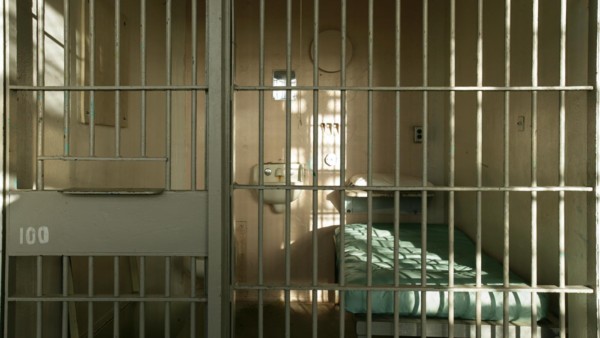



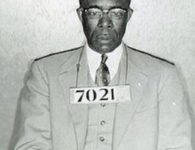


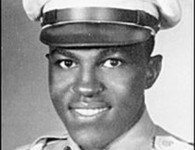
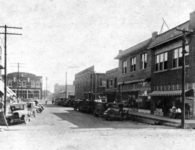

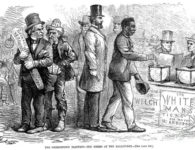




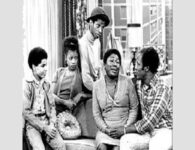




13 Comments
Believe it or not there is a penchant for government officials to lock Blacks and especially Black males in prisons. The stats you mentioned tell all the truth. But also there is love for government people to make sure Blacks released from prisons go back there. That is why for almost 6 years I have been trying to get a job with Department of Corrections to reverse that trend. I want all Black people and of course people o other races in prisons who have been mentally rehabbed to gain skills before are released. I think I will get that job soon. I will make sure tech schools around reach Blacks and of course prisoners of other races for training in skills before they are released. I will keep you informed of the case I have with the Department of Corrections in my State.
It’s true; internalized racism continues to be a dominant force in our society. Frequently, conservative whites with racial tendencies capitalize on these feelings and put individuals willing to voice such opinions up as “pillars of the community.” I’ve taught in Title 1 schools that are both minority majority and have high poverty rates for years. Sadly, the administrators and teachers that are the most derisive of students are frequently minority themselves. I think it might stem from a, “I did alright, you can, too!” mentality, but really that internalized racism is an article all it’s own.
Good luck in your job search! I hope you’re able to do some good there!
So true minority teachers are more racist than some whites toward their own people I worked in a school system it was sad what they did is remind me of a statement my mom use too say to us “I got mind you go get yours”
This info is invaluable. How can I find out more?
This post will help the internet viewers for creating new webpage or even a blog from start to end.
This is really interesting, You’re a very skilled blogger. I’ve
joined your rss feed and look forward to seeking more of your fantastic
post. Also, I’ve shared your site in my social networks!
Hi! Do you know if they make any plugins to help with SEO?
I’m trying to get my blog to rank for some targeted keywords
but I’m not seeing very good gains. If you know of any please share.
Cheers!
It’s nearly impossible to find well-informed people about this subject, however, you seem like you know what you’re talking about!
Thanks
Good respond in return of this question with genuine arguments and
explaining all on the topic of that.
Hello! Would you mind if I share your blog with my zynga group?
There’s a lot of people that I think would really enjoy your content.
Please let me know. Many thanks
Link exchange is nothing else except it is simply placing the other person’s web site link on your page at suitable place and other person will also
do similar in support of you.
Fantastic post however I was wondering if you could write a litte more on this subject?
I’d be very grateful if you could elaborate a
little bit more. Bless you!
Keep this going please, great job!